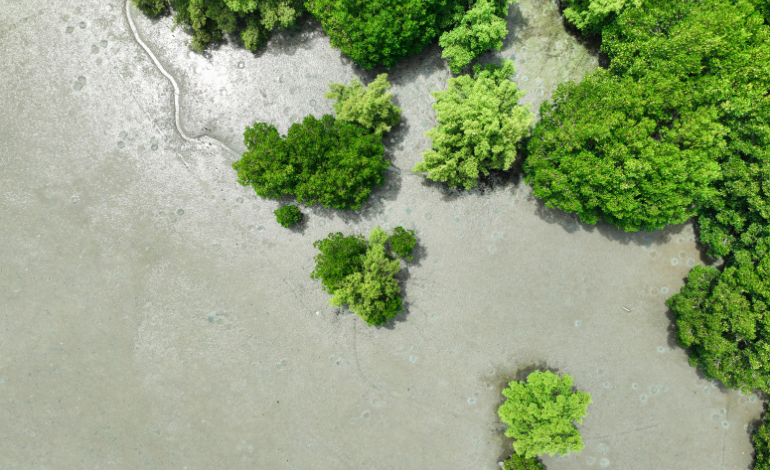Papua New Guinea is moving forward with establishing the Pacific’s first Blue Carbon Policy, which aims to protect and sustainably manage the country’s critical blue carbon ecosystems, such as mangroves, seagrasses, and tidal marshes. This policy will create a framework to conserve these ecosystems while integrating them into the nation’s National Greenhouse Gas Inventories.
In August 2024, a two-day workshop called “The Pathway towards Papua New Guinea’s Blue Carbon Policy” was held in Port Moresby at the Stanley Hotel. It was organised by the Climate Change and Development Authority (CCDA) and the Conservation and Environmental Protection Authority (CEPA), with backing from international partners, including The Nature Conservancy and the MACBLUE project. The workshop aimed to align blue carbon conservation efforts with national climate goals and address governance challenges in sectors like livelihoods, conservation, and ecotourism.
Debra Sungi, Acting Managing Director of CCDA, stressed the importance of integrating Papua New Guinea’s blue carbon ecosystems into its climate action plans under the Paris Agreement. She noted the need for collaboration among stakeholders to develop a comprehensive policy that effectively manages these ecosystems. The workshop also built on previous consultations, with a goal to finalise the policy framework by March 2025, and complete an inventory of greenhouse gas emissions by the end of this year.
Jude Tukuliya, Managing Director of CEPA, highlighted the importance of blue carbon ecosystems not only for environmental protection but also for economic growth. The national marine programme, which outlines efforts to protect these ecosystems, aligns with broader goals of sustainable development.
The MACBLUE project, along with The Nature Conservancy, continues to play a key role in helping Papua New Guinea meet its blue carbon ambitions. The finalised policy will support the sustainable management of blue carbon ecosystems, ensuring benefits for local communities that rely on these vital coastal environments.
(Compiled from various PNG news sources)



